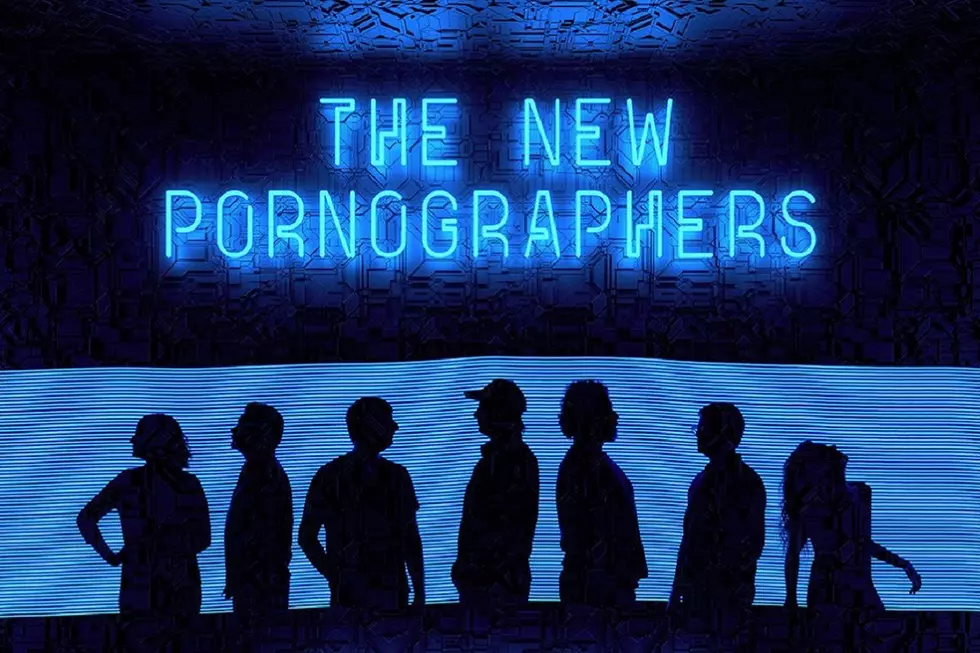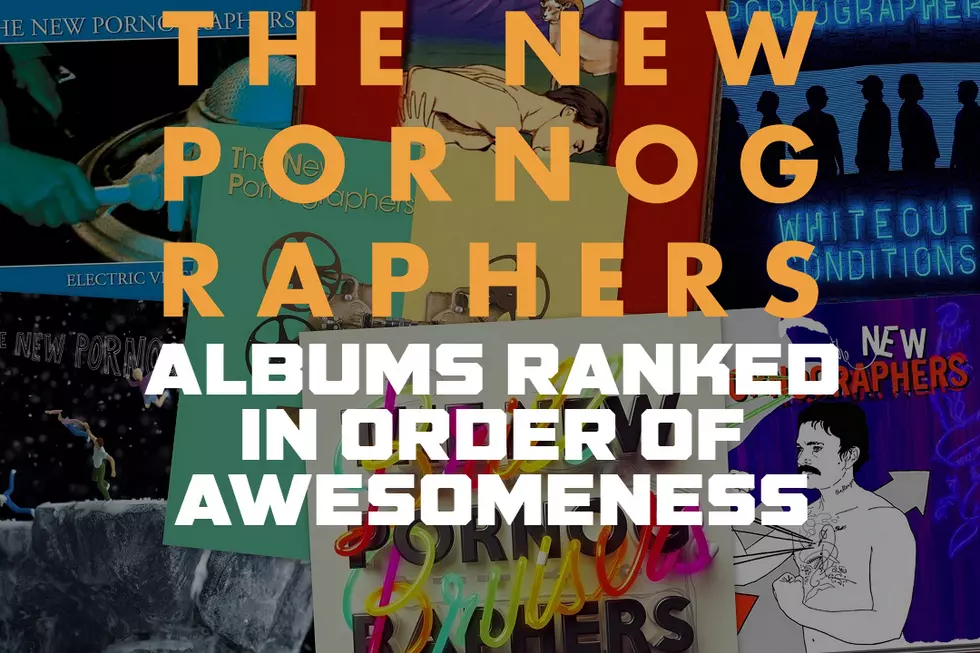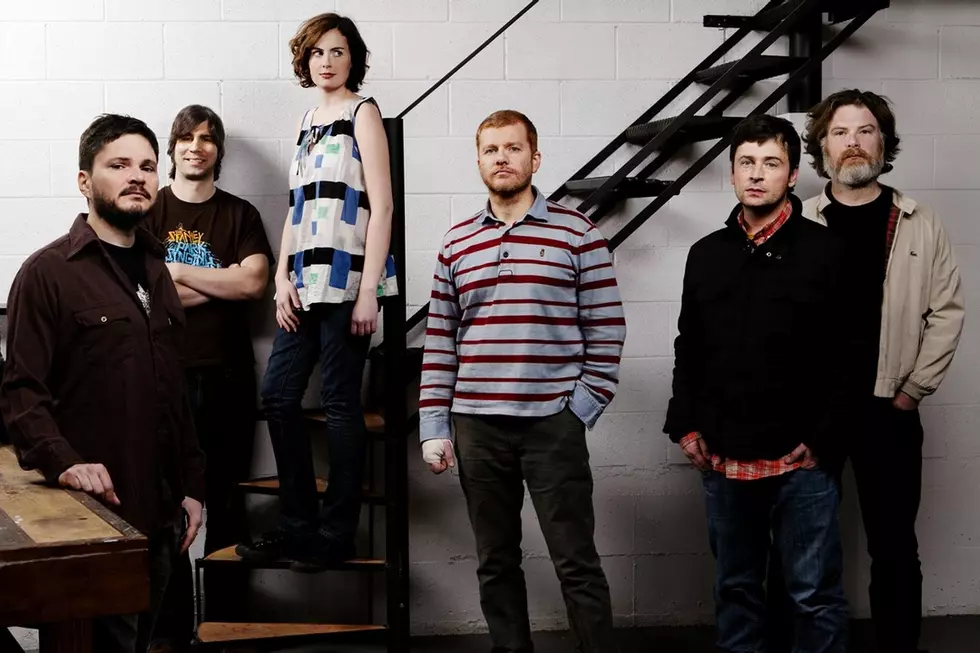Fancey Lovingly Recreates ’70s Soft Rock on ‘Love Mirage': Exclusive Interview
Time-Life likely never suspected that the music found on its '60s and '70s AM Gold collections would still be all the rage these days. Aimee Mann's forthcoming new album, Mental Illness, is influenced by Bread and Dan Fogelberg. Hall & Oates is co-headlining arenas with Tears for Fears this spring. And Fancey—the solo moniker of New Pornographers member Todd Fancey—recently released Love Mirage, the first Fancey album since 2007's Schmancey.
Call this LP the best album of 1978, as it's dominated by vintage keyboards, whispery percussion and lush instrumentation bolstered by sharp horns or string bleats. Disco is of course an influence: Standout "Witch Attack!" boasts a funky foundation, while "Wander" begs for heavy airplay at a roller rink and "Disco Angel" is a pillowy ballad.
The well-crafted "Carrie," meanwhile, resembles ELO, and "Dream All Night" is pure Bee Gees harmonic bliss. Fancey's breathy vocals and lovelorn sentiments ("I can dream all night / But I can't sleep without you") are amplified even more by vocal contributions from Angela Kelman and one of her singing students, 13-year-old Olivia Maye.
To create Love Mirage, Fancey found a kindred retro spirit in producer Allan Rodger, whom he encountered (appropriately) while hanging out in a studio. "I was working with someone else and was walking down the hall and [heard] him play Hammond organ," Fancey tells us. "He's got the real Hammond organ—those things are huge. It was like, 'This is the guy I should be recording with. What am I doing?'"
Prior to encountering Rodger, Fancey had been working on music here and there, and was "trying to figure out how to complete something that I thought sounded good. …[I was] just sort of fighting the mediocrity of what I was doing." Meeting the producer, however, helped him find the direction and premise for Love Mirage he had been seeking.
"I could see what I could do with him, the way he plays and stuff," Fancey says. "And then it was like, 'Oh, gotta do it totally authentic.' And that's what he said—make it era-correct."
The producer thankfully already owned plenty of vintage gear to make this a reality, although Fancey says they were willing to travel and track down crucial instruments as needed. For example, the pair went out in search of one bit of gear which "a band like the Carpenters would use instead of bringing all their violins on tour," Fancey notes.
This level of authenticity was important to both men. "[We made] sure that we didn't use any plugins," he says. "You can get all those things on a million programs now, and they sound pretty close. But it's just not the same."
Still, recreating the gooey harmonies and instrumentation from that time wasn't always easy. "Drums for soft rock... I mean, we did our best to try to make it sound good, but they're probably the hardest drums to get because they really… you can't do one extra thing too much, or it would just be too much," Fancey says. "But he's got good taste when he drums—I think, anyway."
Love Mirage isn't necessarily a new direction for the musician, as he's always been drawn to this style of music, among many other genres. "I do admire the perfection of that old stuff," he says. "I was so into metal and [Black] Sabbath and Ozzy [Osbourne] when I was a kid that it was sort of like… I love the soft rock of the '70s because it's so much different than that.
"And the recordings are so perfect," he adds. "There's something in the air back then. You have a little bit of that mystique in the songs—almost a bit of a sadness or something."
Conversation turns to the fact that in certain circles, Fancey has seen how the soft rock staple Bread is "very divisive. I remember one guy saying to me, 'Those are fighting words,' because I said I liked David Gates.
"There's this whole thing, right, with lyrics that are maybe really simple and earnest— so the '70s, basically," he continues. "Bread sold a lot of records [and] had a lot of love songs. It's weird how you almost find people are sometimes too manly to admit they like it. They almost have to say it's a guilty pleasure. Why? I don't know. I think maybe it's the lyrics. People seem to really be divided on lyrics."
Although Love Mirage bears a sonic resemblance to this time, its brand of perfectionism is driven even more by Fancey's own ambition. After so many years dormant, he didn't want to release music for the sake of releasing music; he wanted to make sure what he put out in the universe sounded right.
"I was like, 'This has to sound good,'" he says. "There's so much good stuff coming out all the time. And there's times where I was like, 'F---, am I going to be able to get this, or what? Am I ever going to be able to come up with something I'm happy with?'"
Thankfully, that's not an issue today: Fancey says he has "a factory going with [Rodger], musically" and recently completed a pedal steel-augmented covers record that "ended up sounding very country, almost like late '60s country or early '70s country." Better still, this is due to come out sometime this year.
"It took a long time," Fancey says, "but now I know how to do it really quickly—relatively speaking."
2017's Most Anticipated Albums
More From Diffuser.fm









